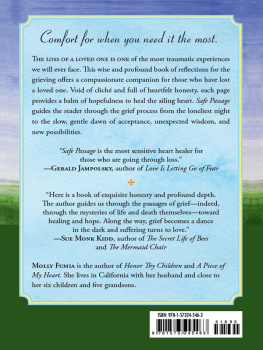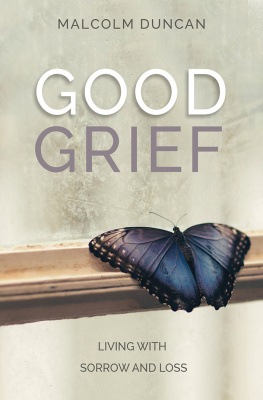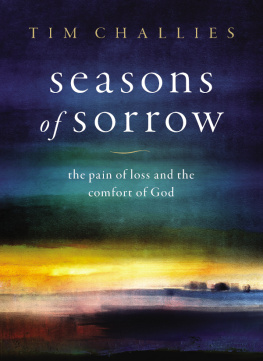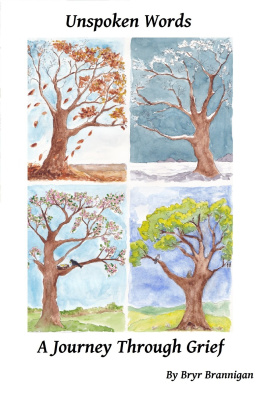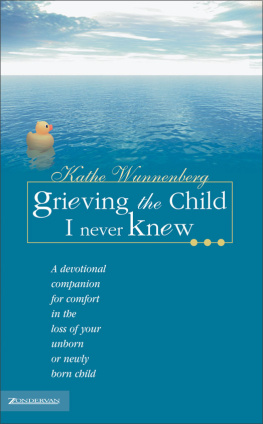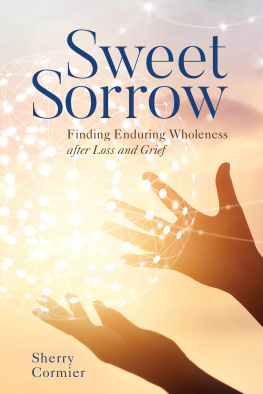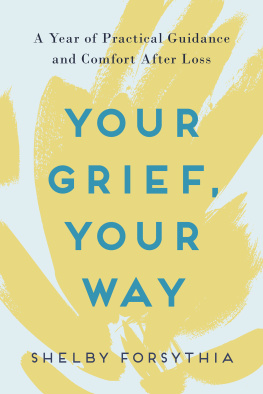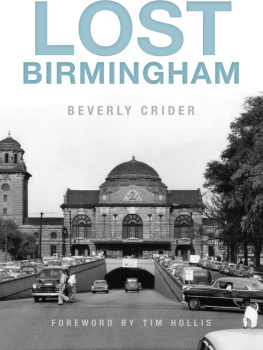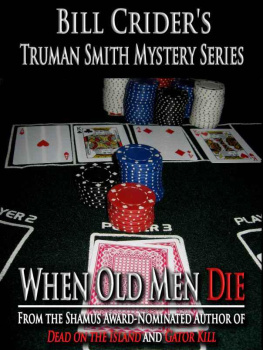GIVE SORROW WORDS
A Fathers Passage through Grief
TOM CRIDER

ALGONQUIN BOOKS OF CHAPEL HILL 1996
Published by
ALGONQUIN BOOKS OF CHAPEL HILL
Post Office Box 2225
Chapel Hill, North Carolina 27515-2225
a division of
WORKMAN PUBLISHING
225 Varick Street
New York, New York 10014
1996 by Tom Crider. All rights reserved.
For permission to reprint poems and excerpts in this book, grateful acknowledgment is made to the holders of copyright, publishers, or representatives named on , which constitutes an extension of the copyright page.
Library of Congress Cataloging-in-Publication Data is available for a previous edition of this work.
eISBN 9781565127463
This diary would have stayed within the covers of a notebook if it hadnt been for the help and encouragement I received from many wonderful people. First of all is my wife, Mieke, who read with patient and sensitive attention each of my many attempts to deepen and clarify the manuscript. The manuscript was much improved after careful readings by Linda Donn, Nancy Adams Malone, and Violet Skorina. My gratitude also to caring family members and many stalwart friends for their support through this time of anguish.
And to Peter Workman, Shannon Ravenel, and Elisabeth Scharlatt, who believed my story was worth putting into print.
FOR GRETCHEN
From the Author
DEAR READER,
I have no way of knowing who you are or why you picked up this book. If you are grieving, my heart goes out to you, and I hope you find some solace in these pages. If you are reading this because the title stirred your curiosity, perhaps my story will help you remember, when you need to remember, that you are not alone.
This book is no more (and no less) than one persons story of a struggle with grief. I am not qualified to tell you how to bear your own tragedies, so this is not a self-help book. In a Buddhist parable, a grief-crazed woman carrying her dead son in her arms is told to go and collect mustard seed from anyone she can find who has not suffered a terrible loss. At every house she hears a tale of woe and begins to see with her deep mind what she may have known, but only superficially, before: that every humans life is vulnerable to the shock of death. Reading this book, you might think of yourself as being at my doorstep listening to my tale. Mine is one of a multitude of stories, each as heart-wrenching as the next and, as the story of the mustard seed suggests, comforting to those who are ready to hear.
I was poorly prepared for the tragedy that shattered my life. As a middle-class American with a good education and better-than-average luck, I had been temporarily insulated from death. I had no well-established religious beliefs, was not a member of a church, synagogue, or mosque. I was what you might call a spiritual loner, somewhat of a skeptic, and more comfortable with reason than emotion.
The sudden death of my twenty-one-year-old daughter, Gretchen, knocked me into a tailspin of spiritual, psychological, and emotional confusion. Like a dog suddenly kicked by a person who has treated him kindly for years, I was shocked to the core of my being. And I had no religious faith to fall back on. The well-intentioned people who spoke to me of Gods love, of Gods plan, of life after death and similar beliefs could not have known how incomprehensible (and at times infuriating) such statements were to me.
Because I love to read, I turned to books for help, only to discover that all the books on bereavement I could find were written either from a conventionally religious stance or from a New Age one. These books assumed belief in such things as immortality and the goodness of God, both of which I questioned. What I needed was not preaching, but companionship in grief and tolerance of my doubt and confusion. I kept searching until I found the kinds of stories, myths, poems, and personal accounts that spoke to me. I dont mean to imply that I didnt get and appreciate support from real live human beings: I did. But my late-night reading during the darkest months greatly expanded upon my personal experience. Books led me into a soothing stream of stories, ideas, poems, and emotions that flows through time from the minds and hearts of people of all cultures and ages. The music of this stream sang tenderly to me and rocked me in its embrace. It still does.
Perhaps my words will join this stream. I hope so. And I hope that as you read, you will hear some of the music I heard.
Tom Crider
Give sorrow words; the grief that does
not speak
Whispers the oer-fraught heart and
bids it break.
Macbeth, Act IV, Scene one
A memorial service for Gretchen Erica Crider, who died in an apartment fire Saturday in Easton, Pa., will be held Wednesday at 2 P.M. at Christ Church here. Burial will be at the convenience of the family and there are no calling hours....
Miss Crider, 21, a student at Lafayette College, died from smoke inhalation and burns when her third floor apartment at 106 Cattell St., Easton, caught fire. Easton fire officials believe the fire was started by several candles left burning after Miss Crider fell asleep.
She was pronounced dead at Easton Hospital after firemen removed her body from the small room shortly after 4 A.M....
January
A new year begins as Earth moves through space, turning around the sun once again. Its orbit is not altered in the slightest by the sudden absence of my daughter.
I wake up and lie in the dark. Her room is filling with smoke again. She gets up from her bed. The smoke is so thick! She stumbles toward the window and falls over a chair. This is where the firemen say they found her body.
When I see her stand up from her bed, I try to reach into the smoke and steer her to the door. Its over here, Gretchen. Two steps away! She cant hear me. She turns and goes toward the window, falls over the chair, and dies. Again and again.
He doesnt understand how it is possible. A month ago he was asleep in his house on the hill with everything in its place and his immeasurably precious Gretchen in college. There was banging on the door, the dogs barked, and the police came out of the night to say that Gretchen had just died in a fire.
My dear, sweet Gretchen, my only child... dead?
He stands in a field of frozen grass, the sun above him a pale hole in gray sky, sucking warmth from the earth. At the edge of the woods, he looks for her in shadows.
In the mailbox is an envelope from Medic 9 Paramedic Services. Its addressed to Gretchen. Inside is a bill for what they did to try to save her. Advanced life support aid was given for the following suspected problem(s): Cardiac arrest, burns, respiratory arrest.
The word burns startles him. He knows you dont treat burns if someone has stopped breathing; you do CPR. Was she alive when the firemen brought her downstairs?
I imagine Im the paramedic, kneeling, tipping her head back, pinching her nose, putting my lips on her mouth. Two long breaths to fill her lungs, then I check to see whether her heart and breathing have started again.
Was it hard for the paramedic to put his mouth on her burned face? Did he see any life coming back to her? Did her eyelids flutter open?
He reads the bill several times during the day. Was the reference to treating her burns an error? Did they bring her back for a moment? Was she reaching up for life and air?
Ill call them and ask: Did my daughter come back?
Did she?
He and his wife, Mieke, waited in the hotel room for the funeral director. There was a knock on the door. A man came in and started speaking to Mieke, but she said she was not the mother and gestured to her husband. The funeral director handed him a maroon plastic box about ten inches long and six inches high, weighing less than five pounds.
Next page

